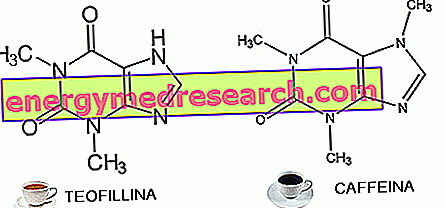Recommended vaccinations
Vaccinations performed in dogs are for the following diseases:
- Distemper : also called " Carrè disease ", it is caused by a virus belonging to the genus Morbillivirus .

- CAV-1 and CAV-2 infections : these are two types of Adenovirus that cause the first infectious hepatitis of the dog, and the second, together with other pathogens, infectious tracheobronchitis or " kennel cough ". Thanks to the close correlations (antigenic similarities) between the two viruses, vaccination against CAV-1 usually results to be protective even against CAV-2.
- Infectious hepatitis ( Rubarth's disease ) can be found in animals of all ages, although it is more severe in young ones. The disease is manifested by fever, frequent yelps (which often indicate severe abdominal pain in the dog), reluctance to movement, vomiting and diarrhea, apathy (detachment, failure to respond to stimuli), photophobia (light intolerance) and, in puppies, death sudden.
- Infectious laryngotracheitis, also caused by other viruses or bacteria (such as the Parainfluenza virus type 2, for which it can be vaccinated, or Bordetella bronchiseptica ) begins with a productive cough (with phlegm) or dry cough, possible swallowing with no load and / or nasal discharge;
- Hemorrhagic gastroenteritis: responsible for this pathology is a Parvovirus (CPV) that has a fecal-oral cycle (it is eliminated with the faeces, urine, vomit and penetrates into the host through the oral route). Once ingested by the animal it is localized in its intestine causing vomiting, diarrhea and intestinal hemorrhage. In dogs suffering from the most severe forms, fever, septic shock and death can be detected in 3-6 days. Puppies that are born from unvaccinated mothers and are infected before 8 weeks of life may develop myocarditis (inflammation of the heart muscle) which can lead to death.
When to vaccinate
In puppies born to mothers vaccinated generally:
- a first vaccination is performed at 7-8 weeks of age with concentrated vaccine for Cimurro and Parvovirus ;
- after 21 days a second vaccination is performed for Cimurro and Parvovirus, to which is added the one against Adenovirus .
- Subsequently, after 3 weeks (we are therefore at the thirteenth - fourteenth week of life of the dog) the last recall for Cimurro, Parvovirus and Adenovirus is performed.
- Then annual reminders are made.
In puppies over the age of 12 weeks and in adults whose vaccine history is unknown, two vaccinations are performed against Cimurro, Parvovirus and Adenovirus at a distance of 21 days, with, finally, a recall a year
Optional vaccinations
Other vaccines that can be used in dogs that live in areas where the disease, for which it is vaccinated, is endemic (or widespread) are represented by vaccines against Leptospirosis, Leishmaniasis, Coronavirus infection and Rabies.
Leptospirosis
Leptospirosis is a bacterial disease caused by several leptospires, including Leptospira canicol a and Leptospira icterohemorrhagiae .
Animals at risk of contracting Leptospirosis - that is, subjects that can come into contact with infected dogs and / or carrier rats, as the disease is transmitted by bites, couplings, or by ingestion of tank animals (rat), water and food contaminated - should receive two vaccinations, starting at 3 months of age, and done three weeks apart. Subsequently semi-annual recalls (every 6 months) are recommended.
It should be remembered that all types of leptospires that affect mammals are also potential pathogens for humans (zoonoses), so the right precautions must be taken.
Leishmaniasis
Leishmaniasis is a widespread disease in Mediterranean countries, caused by the parasite Leishmania infantum .
The parasite is transmitted from an infected dog to an uninfected dog through phlebotomus bites (a type of gnat called pappatacio).
Not all infected dogs show signs of infection; however, if this occurs (ie in the presence of fever, loss of hair and weight, skin inflammation), active infection can be fatal.
Infected dogs play a decisive role in the accidental transmission of the parasite to humans (rare but still possible).
Vaccination does not offer absolute protection; it therefore represents a possible complementary measure to the use of traditional preventive means (such as sprays, collars and other external repellents that have the aim of avoiding the bite of the phlebotomus or pappatacio responsible for the transmission of leishmaniasis).
Coronavirus
Coronavirus causes a mild gastro-intestinal viral disease, often only in puppies, so some authors believe that vaccination is not indicated in adult dogs.
Anger
Rabies is a lethal viral disease that affects almost all mammals (including humans) caused by a Lyssavirus .
In Italy vaccination against this virus is mandatory only in areas at risk and dictated by local ordinances.
Classic Vaccine Scheme
| AGE | VACCINE |
7-8 weeks | CP concentrated |
10-11 weeks | CP + A ± L |
13-14 weeks | CPA ± L |
Annual CPA call | |
Recall every 6 months for L | |
Cat vaccination »




